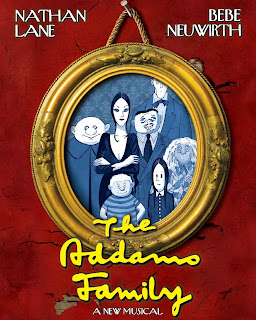THE TWILIGHT SAMURAI - REVIEW
That Hiroyuki Sanada has been wasting his time lately with underwhelming Hollywood blockbusters like The Wolverine and 47 Ronin is criminal, especially when you know he can be as good as he is in 2002's The Twilight Samurai.
Now, don't get excited, no vampire samurais here.
No, this is a proper samurai flick in which we follow Sanada's low-level samurai Iguchi as he goes home every evening to be with his daughters and his sick mother following the untimely death of his wife. The people around him mock him, nicknaming him "Twilight Seibei", he even gets in trouble for not taking care of himself, his clothing and his appearance enough, yet he isn't miserable: he enjoys seeing his daughter grow up day by day and he has very little ambition besides giving up being a samurai eventually and living a peaceful life as a farmer. The film is set at a time when the Japanese feudal system was transitioning to a more modern one and the old samurai ways were starting to clash with the new order of things. Iguchi is kinda just in the middle, not wanting to take part in these changes at all and simply wanting to live his life and take care of what little family he has left, which I guess is how many people probably felt at the time. Everyone around Iguchi is either gossiping about him or forcing him into out-dated, old-fashioned traditions. But he's not the only one feeling detached from all these old rules, Iguchi's childhood friend and love interest Tomoe having to struggle to divorce a drunk thug who beats her and the older man Iguchi is hired to kill near the end refusing to commit hara-kiri.
Speaking of that last confrontation, there are some very tense moment in this movie, basically whenever Iguchi is made to engage in a physical conflict, but that last part is truly nail-biting: its slow, darkly shot build-up only adding to the tension. Yoji Yamada's film looks gorgeous and you'd never guess this was a 2002 release as, visually, it actually has a timeless quality to it. The performances all-around are really good and, at times, quite subtle, and you do really feel for Iguchi and his family. The film does dip its toe into melodramatic territory with the romance, the framing device (the whole story is told by Igushi's daughter) and the emotional epilogue, but never too much so. The refreshing thing about this particular samurai movie is how it resists the urge to go down the "action" route and go out of its way to make its main character badass, even if he is portrayed as a good fighter and gets a couple of moments to show that, and deliver some gratuitous battles with blood splattering at the camera and that type of stuff. Zatoichi this is not. Twilight Samurai is restrained, in a good way, and still manages to not be dull one second, mostly because we care so darn much about these characters and don't want anything horrible to happen to them, even if you feel something awful is coming their way.
Overall, it's a shame that this film didn't win the Best Foreign Language Film Oscar it was nominated for as it would have deserved it and it's a movie which still deserves more recognition than it's received. It's a beautifully made film, a really well told story with a brilliant performance by Sanada at its heart.
One to watch, definitely.
Vampires or no vampires.




Comments
Post a Comment